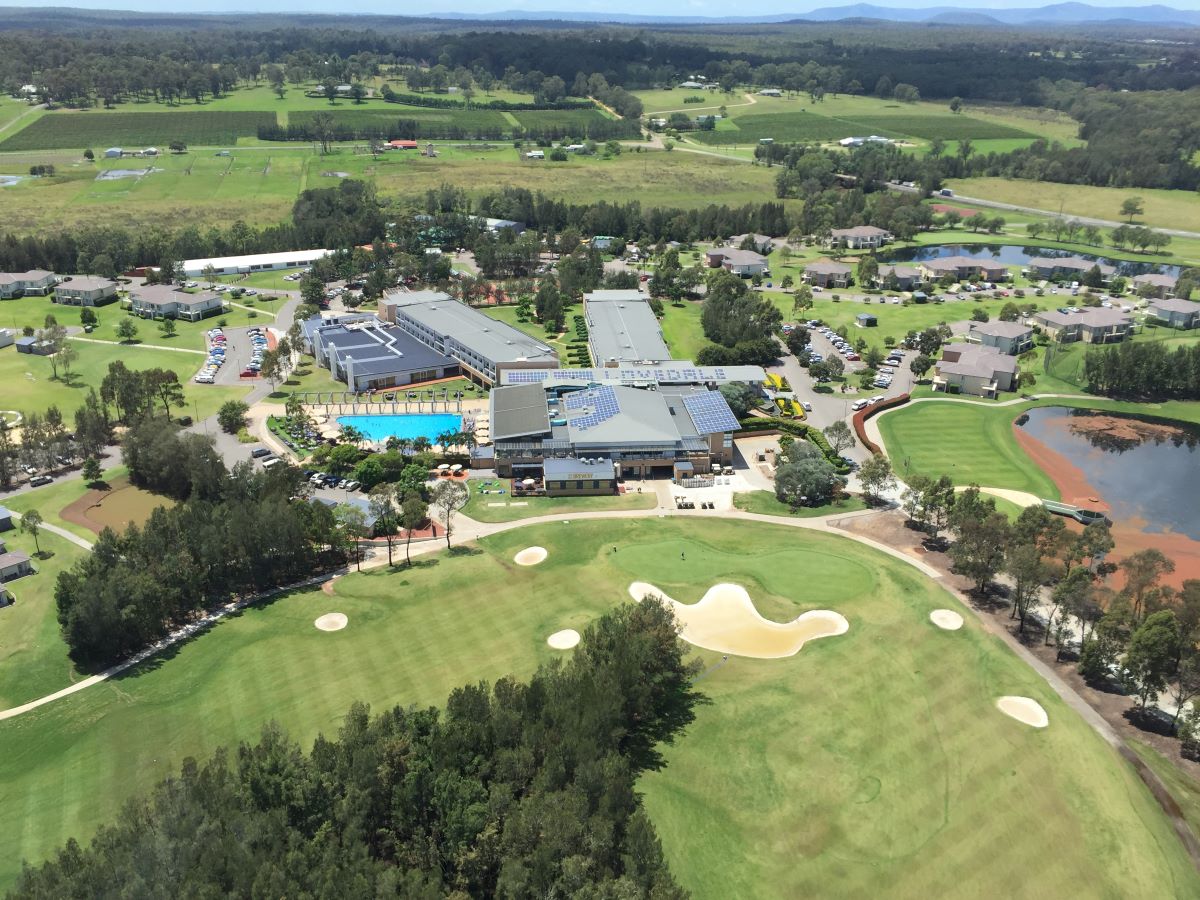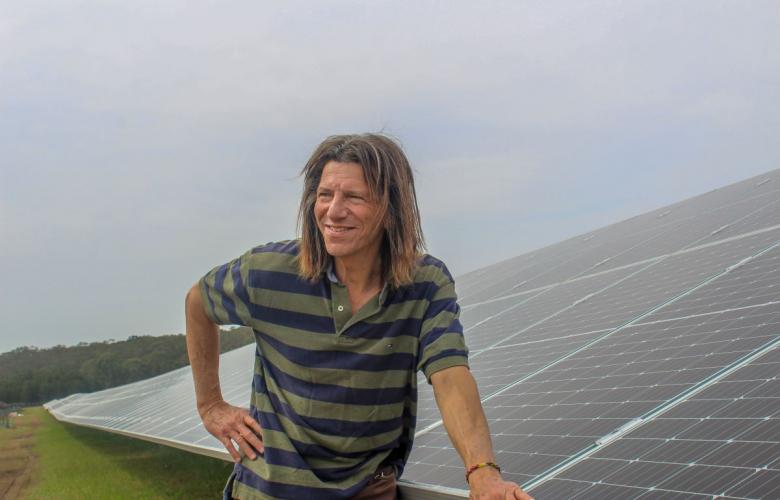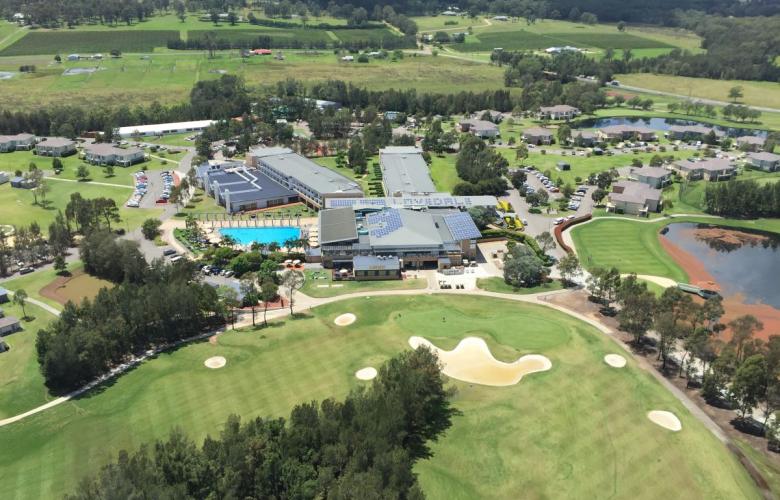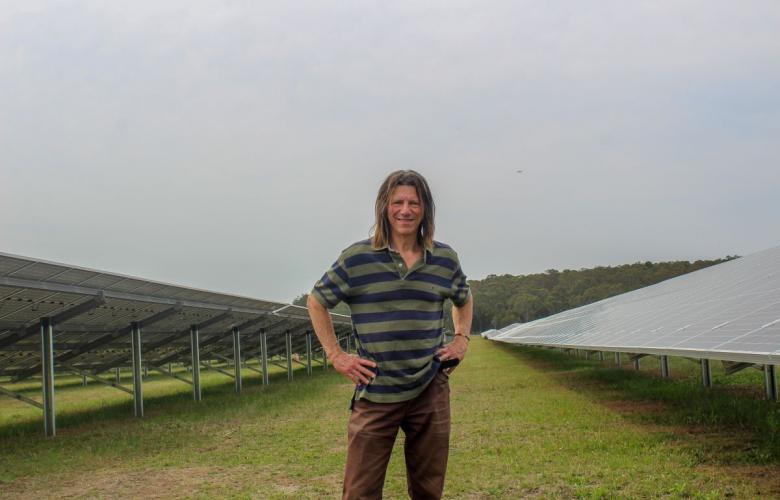Jerry Schwartz set to launch solar farm in the heart of Hunter Valley's coal country
Contact
Jerry Schwartz set to launch solar farm in the heart of Hunter Valley's coal country
Jerry Schwartz is leading the way in environmental sustainability for the tourism/hospitality sector with the launch of a massive Hunter Valley solar farm in the Hunter Valley's coal country to power his hotel and tourism assets.
Australia’s largest private hotel owner, Dr Jerry Schwartz, is bringing a massive renewable energy source to the heart of coal country in NSW’s Hunter Valley.
The 5.000 MW capacity solar farm comprises 13,350 panels on property that he owns adjacent to the Crowne Plaza Hunter Valley in Lovedale near Cessnock in the Hunter Valley.
At a glance:
- Australia’s largest private hotel owner, Dr Jerry Schwartz, is bringing a massive renewable energy source to NSW’s Hunter Valley coal country with the launch of a solar farm to power his hotel and tourism assets.
- The 5.000 MW capacity solar farm comprises 13,350 panels on property that he owns adjacent to the Crowne Plaza Hunter Valley in Lovedale.
- When operational at the end of November, the renewable energy source will deliver a C02 reduction of approximately 7,811,000 kg per annum.
- This is the latest in a series of environmental initiatives delivered by Dr Schwartz’s company.
When the $8.5 million solar farm becomes operational at the end of November, the renewable energy source will deliver a C02 reduction of approximately 7,811,000 kg per annum – equivalent to removing over 4300 vehicles annually from the road.

Lovedale solar lights, Hunter Valley
The solar farm was first conceived in 2016, and approved after a full statement of environmental effects and a vegetation management plan. The Development Application was approved by Cessnock City Council and the Joint Regional Planning Panel in December 2018.
Work commenced in February 2019, installing ground mounts for the 13,350 solar panels. High voltage cabling and new power poles and switching gear is now being installed for connection to Ausgrid’s infrastructure.
Two inverters have been delivered to site and an electrical switch room is being constructed, with the solar farm starting to generate power at the end of November 2019.
The energy generated will contribute to the requirements of the Crowne Plaza Hunter Valley, Hunter Valley Conference & Events Centre and Sydney Brewery, all located on the Lovedale site. It will effectively start to make the Schwartz properties 100% renewable, with excess power initially sold back to the grid before eventually contributing to the power needs of Dr Schwartz’s other hotels across the State.
This is the latest in a series of environmental initiatives delivered by Dr Schwartz’s company.
Three years ago, a large bank of solar panels was installed on the roof of the Crowne Plaza Hunter Valley, spelling out ‘Lovedale’. The 99.58kWp solar plant produced a CO2/greenhouse gas reduction of 164,384 kg per annum.
The installation of the solar panels was part of an integrated environmental project that also included the development of a ‘co-generation’ plant.
The co-generation plant involved the simultaneous production of two forms of energy – electricity and heat, from a single fuel source (gas), which is used by the Crowne Plaza Hunter Valley in its daily operations. The waste heat produced in the co-generation process is then used for production of hot water and heating in the hotel, as well as heating the large swimming pool, production of potable water and use in the Lovedale Brewery production process.
Dr Schwartz is the largest hotel and tourism investor in the Hunter Valley region, with three hotels in Newcastle and the Hunter Valley, as well as a winery, Sydney Brewery, Hunter Valley Conference & Events Centre, and the heritage-listed Newcastle Post Office, which is to be restored into a function centre with an Indigenous Interpretive Centre.
Dr Schwartz said environmental and sustainability best-practice needed to be at the heart of all hotels’ operations.
“It is particularly important to showcase renewable energy in the heart of a region still known for its coal mining,” said Dr Schwartz.
“Tourism is the sustainable industry of the future for the Hunter Valley, and to make the hotel, convention centre and brewery 100% renewable is an important initiative."
“The opening of the Hunter Valley Conference & Events Centre in 2015 means that at times we have over 1000 people across the venue, so the installation of the solar panels across the property and the building of the new solar farm was an ideal solution to meeting our energy needs while minimising our environmental impact.”
The Schwartz Family Company was also a founding member of the World Green Council, an organisation that delivers online courses for hospitality workers that advocates for sustainability in tourism.









